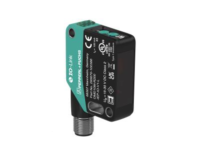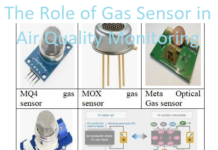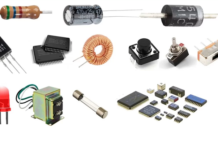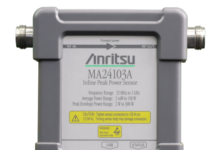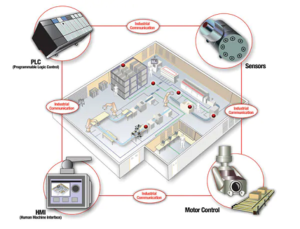
Advancements in intelligent electronic sensing, control and communication are enabling new levels of factory automation for greater efficiency and lower operational costs — and ultimately delivering better products to customers.
Today, in all regions of the developed world, manufacturing is changing rapidly. So rapidly, in fact, that some say we are undergoing a fourth industrial revolution. While the introductions of steam power, the assembly line and early automation drove the first three industrial revolutions, machine intelligence will fuel the fourth one. Advances in electronic intelligence make it possible, to an extent undreamed of in the past, for equipment to measure and modify processes, and for factories to communicate over a wide area. The transition promises a number of benefits, including greater efficiency, flexibility, quality and safety, as well as improved maintenance, energy savings and lower production costs.
The importance of the shift to a new manufacturing system, or the smart factory, cannot be overemphasized. In the future, all forms of advanced industry will have to become more intelligent in order to compete effectively. This intelligence comes from advanced integrated circuits (ICs) that provide sensing, measurement, control, power management and communication, both wired and wireless.
Equipment manufacturers will introduce or add more of these sophisticated electronics in order to enhance assembly, chemical processes and other stages of manufacturing. Sensors throughout the manufacturing area, powered by harvested energy, will report on conditions continually through wireless communications via the Internet “cloud.” Programmable logic control (PLC) units and software will grow in importance, along with complex systems that govern the entire factory floor and exchange information with operations elsewhere.
As an end-to-end supplier of advanced electronic solutions for industrial systems worldwide, Texas Instruments (TI) plays an important role in providing differentiating ICs, software and support that will transform industry in the years ahead.
Benefits of the smart factory
Traditionally, factory automation has been optimized to produce identical or nearly identical goods efficiently and rapidly to achieve cost reductions from volume production. Product variation and design changes often require some degree of flexibility be built into the process. This flexibility usually requires down time for resetting equipment and retooling, which can diminish volumes and increase costs. To the extent necessary, quality, reliability and safety are also built into the process, though these positive factors often represent short-term costs, even if they provide long-term value.
Greater electronic intelligence can enhance the manufacturing process to provide flexibility while keeping costs low and improving quality, reliability and safety. Product diversity is generally market-driven, and often the more the product line can be varied, the more competitive it can be. When intelligent equipment in the factory can handle product variations automatically, smaller production runs become possible without significantly increasing production costs. In this way, smart factories allow greater product diversity and facilitate shorter life cycles for products that have to change rapidly.
To achieve this level of flexibility, intelligence must be built into even the smallest steps of the process. In car manufacturing, for instance, there may be more than two million individually orderable configurations of the finished good, and countless changes in assembly may be needed to cope with all the variations. Even a seemingly straightforward tool such as a screwdriver needs to automatically adapt its torque limitation to the part, which may be steel, carbon or plastic in different configurations. In another example, the increasing use of 3D printers carries flexibility to an extreme, since these can readily adapt to creating prototypes, a small run of items, or even mass production with changes in materials.
Communications is an essential part of the picture, too. Intelligent processes can adapt to product needs based on data entry in the business office, or even unit by unit according to sales orders, for immediate response to customer demands. Moreover, when more significant process changes are necessary, they can often be made quickly through programming, providing a fast, inexpensive way to improve quality or incorporate the results of field reliability studies without the need for expensive retooling.
Intelligent monitoring also enables better predictive maintenance, enhancing the stability and safety of the production process. Vibration sensing, for example, can give an early warning when motors, bearings or other equipments are in need of maintenance. Maintenance also can be scheduled more efficiently through automatic monitoring and reporting, keeping assembly lines in operation. Well-maintained machines are also safer for workers, and there are other safety benefits that can result from more intelligent equipments as well. For instance, today a robot arm must be in an enclosed area in order to avoid striking human workers. In the future, sensors and control intelligence will direct a robot to stop or do an alternative task if a human is within reach. Safer robots will also find new uses, such as teaming with human workers to move and place heavy items.
The above factors can increase product value, decrease production costs, or both. More flexible processes enable low-volume, even one-of-a-kind production runs that are cost-effective and permit manufacturing of diverse products that more people want and will pay more to have. Direct production line communications with business operations enhances just-in-time supply maintenance, which along with well-maintained equipment, keeps lines running more smoothly and reduces costs. A safer environment also benefits labor and can minimize damage claims against management.
The smart factory represents a fundamental change in how production processes are set up and organized. The smart factory also serves to decentralize manufacturing, provide greater intelligence where production activities take place, and create an overall system that is cognitive and self-healing. In addition, the changes coming with the next industrial revolution are not strictly limited to what is traditionally considered manufacturing. Rather, what is envisioned is a system of learning and adaptation that can cover the whole product life cycle, from engineering and production, to maintenance and upgrading, to disassembly and recycling. Electronic intelligence at every stage of this chain can add value to the product, improve customer satisfaction, and achieve broader goals such as saving energy and reducing material waste.
To read in detail about below pointers click on MOUSER BLOG.
Technology requirements for the smart factory
Trends at the heart of automation
TI technology and solutions for smart factories
A smart future for manufacturing




